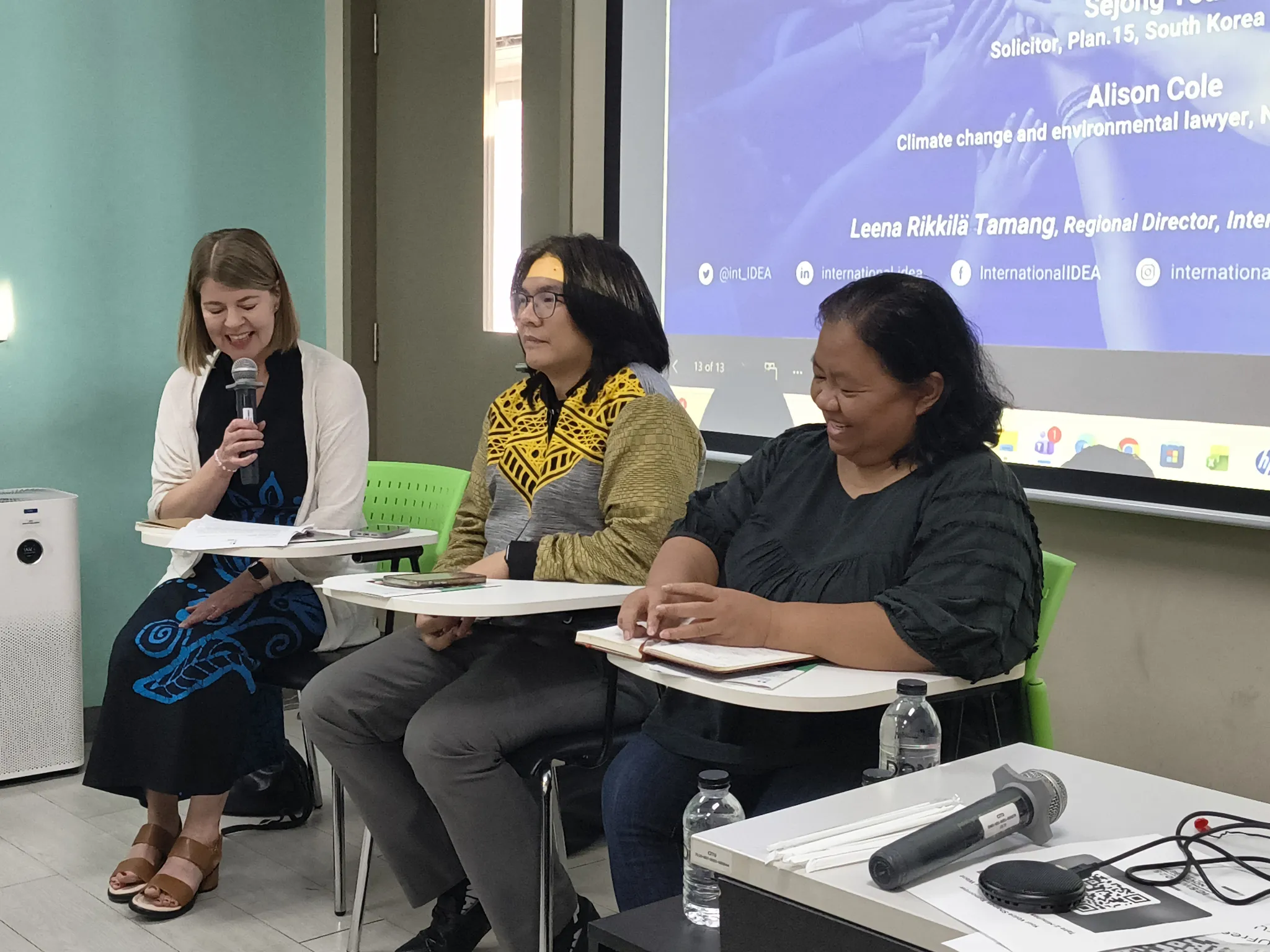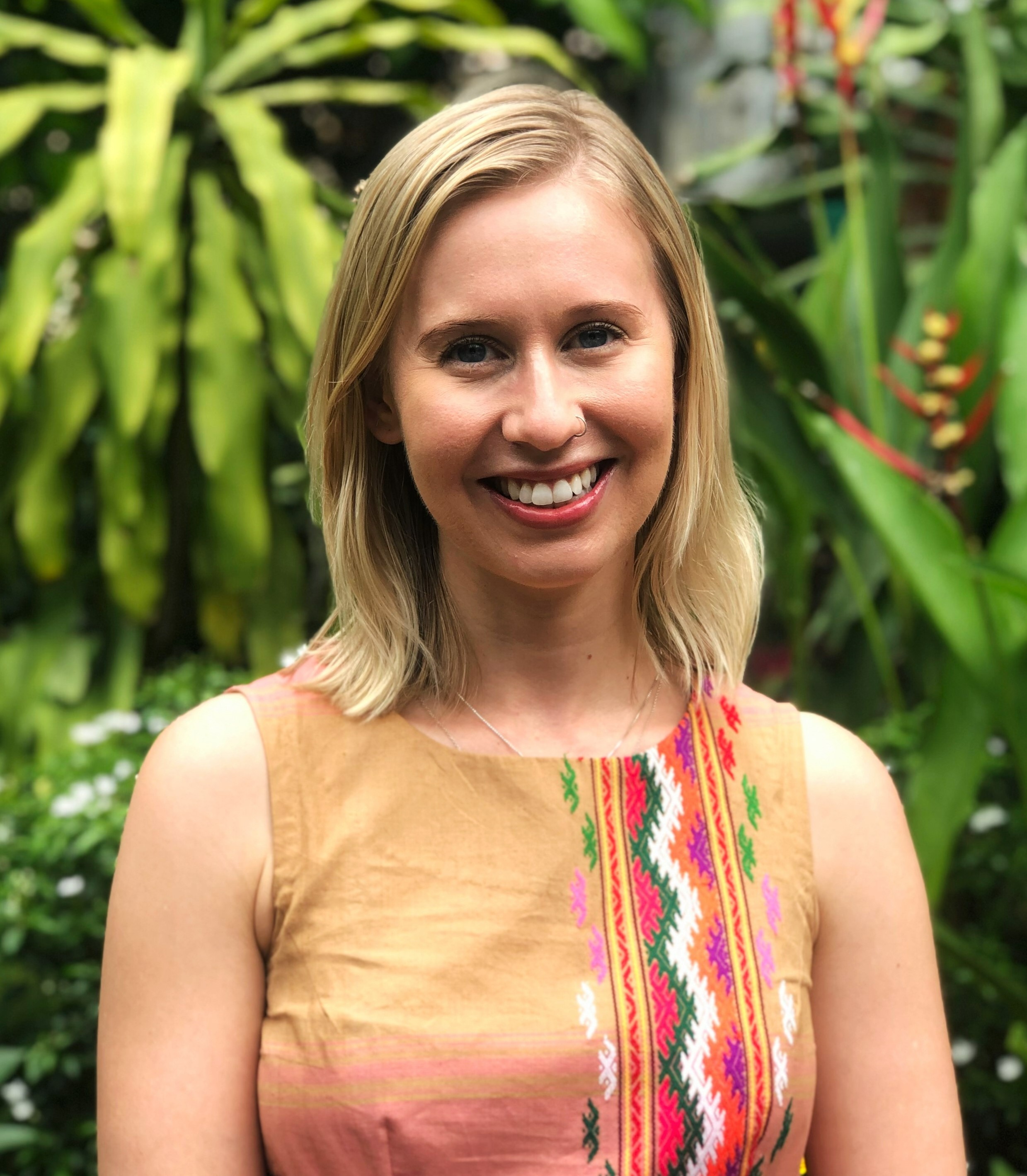Climate litigation from a democracy perspective

On 1 November, International IDEA hosted a panel during the International Civil Society Week in Bangkok, Thailand, to launch the newly published report, “Let the Courts Decide? The Potential and Limitations of Climate Litigation from a Democracy Perspective.” The discussion explored how climate litigation and civil society are increasingly intertwined in advancing accountability, inclusion, and rights protection within democratic frameworks, echoing the basis of the report.
Opening the conversation, Sharon Pia Hickey, International IDEA Programme Officer, Climate Change and Democracy and Constitution Building Processes, introduced the report and underscored the importance of these ideas in strengthening democratic processes globally. “Democracy is both a precondition and an outcome of effective climate action,” she noted, adding that climate litigation can serve as “a way to amplify excluded voices” and as “a check against shrinking civic space.” Drawing on regional cases from South Korea to the Pacific, she emphasised that “strong democratic institutions make climate action more legitimate and enduring, and climate accountability, in turn, makes democracy more responsive and effective.”
Sor Rattanamanee Polkla, Lawyer, Executive Coordinator, and Co-Founder of Community Resources Centre Foundation, reflected on the growing climate litigation within Thailand. “Even if we work with just one community, the impact can spread across many,” she shared, emphasising that climate litigation is a public interest effort grounded in partnership between communities. Her reflections underscored that collaboration is essential to creating change and bridging gaps.
Building on this, Sejong Youn, Co-Founder and Director of Plan 1.5, shared how international collaboration and shared learning are becoming powerful drivers for change. “Most climate litigators around the world are dealing with very similar challenges,” he observed. “By learning from each other’s experiences, we open up larger possibilities for collaboration and idea sharing.” His experience also highlighted how youth movements are using both the courts and the media to amplify their causes and strengthen public accountability.
Raymond Baguilat, Head Legal Officer, UP Law Center Institute of Human Rights, brought attention to the experiences of Indigenous peoples confronting environmental harm. “Education and awareness of rights are gateways for Indigenous peoples to participate and use litigation as a tool for protection,” he said, highlighting the importance of ensuring Indigenous communities have the resources and support to engage meaningfully in legal processes. He also called for stronger cooperation among countries in managing shared resources and safeguarding the environment collectively.
Despite the positive impact of climate litigation on civil, participants recognised that climate litigation carries complex and sometimes ambiguous effects. Sharon Pia Hickey, identifying key points from the report noted that when courts direct governments to adopt climate measures, they can face separation of powers tensions and may appear to overstep. Fear of lawsuits may create a negative effect on ambition, discouraging voluntary climate commitments, while investor–state disputes and strategic lawsuits can be used to resist or punish climate action. Persistent barriers to justice, including strict rules on standing, and implementation gaps when rulings go unenforced also risk undermining trust in both courts and governments.
Nonetheless, the discussion reaffirmed that climate litigation is more than a legal mechanism; it is a democratic practice, strengthening civic participation, amplifying underrepresented voices, and fostering both cross-community and international collaboration in the shared pursuit of climate justice toward a more positive future for generations to come.




